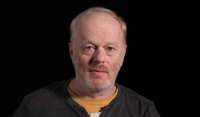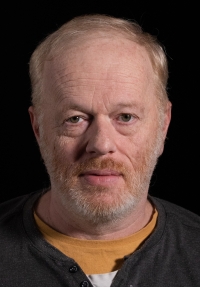People with a Mohawk were always first to go

Download image
Jan Sajdl, an enterpreneur and an amateur musician, was born on August 28th 1964 in Teplice. His parents, Vladimír Sajdl and Jarmila née Práglová, were among the original, pre-war inhabitants of the city. In 1938, during the takeover of the Sudetenland, his mother had been abused by her German peers. Jan Sajdl´s life had been strongly affected by an accident in 1973 as both of his jaws were smashed by a loosened sideboard of a passing truck. He had to undergo series of complicated dental reconstruction surgeries till his seventeenth year of age. He started his first band as a twelve-years-old, but soon gave up an idea of a professional music career. He completed a secondary technical school in Děčín, becoming a father during his studies. After doing his compulsory military service, he got fully involved in the counter-culture scene in the city of Teplice: he had been playing with The Sad Scuba-divers (Smutní potápěči) and several other bands, copying samizdat publications and distributing Vokno and Revolver Revue underground magazines; he also had been publishing The Bird of Teplice (Teplický Fógl) magazine with his friend Robert Appel. He had been harassed by the police and interrogated by the Secret Police (StB). He had been working at Teplice´s (Obvodní podnik bytového hospodářství), after that, he took a blue-collar job at Color Servis Teplice Enterprise. From November 11th to November 13th 1989, he had been participating in environmental protests and also co-founding the local Civic Forum (Občanské fórum) organisation in Teplice. In 1990, he had been working at the North-Bohemian Revue (Severočeská revue) editorial office. Thereafter, he was a French modeling agency representative and had also been organising military equipment exhibitions for NATO countries. Currently, he has been living in Prague (Praha), meeting his friends from Teplice community at The Shot-Out Eye Pub (U Vystřelenýho oka) in the district of Žižkov.

